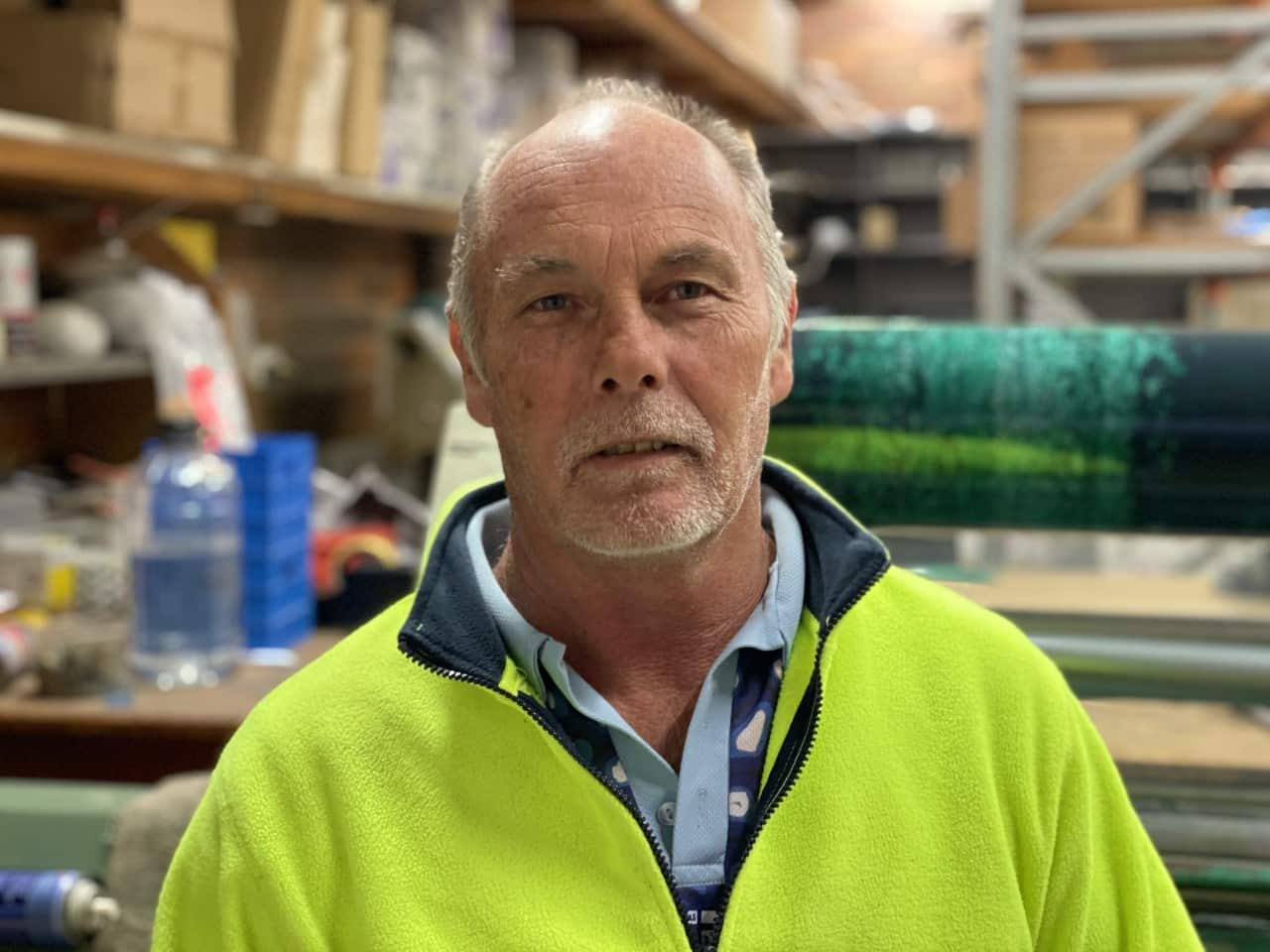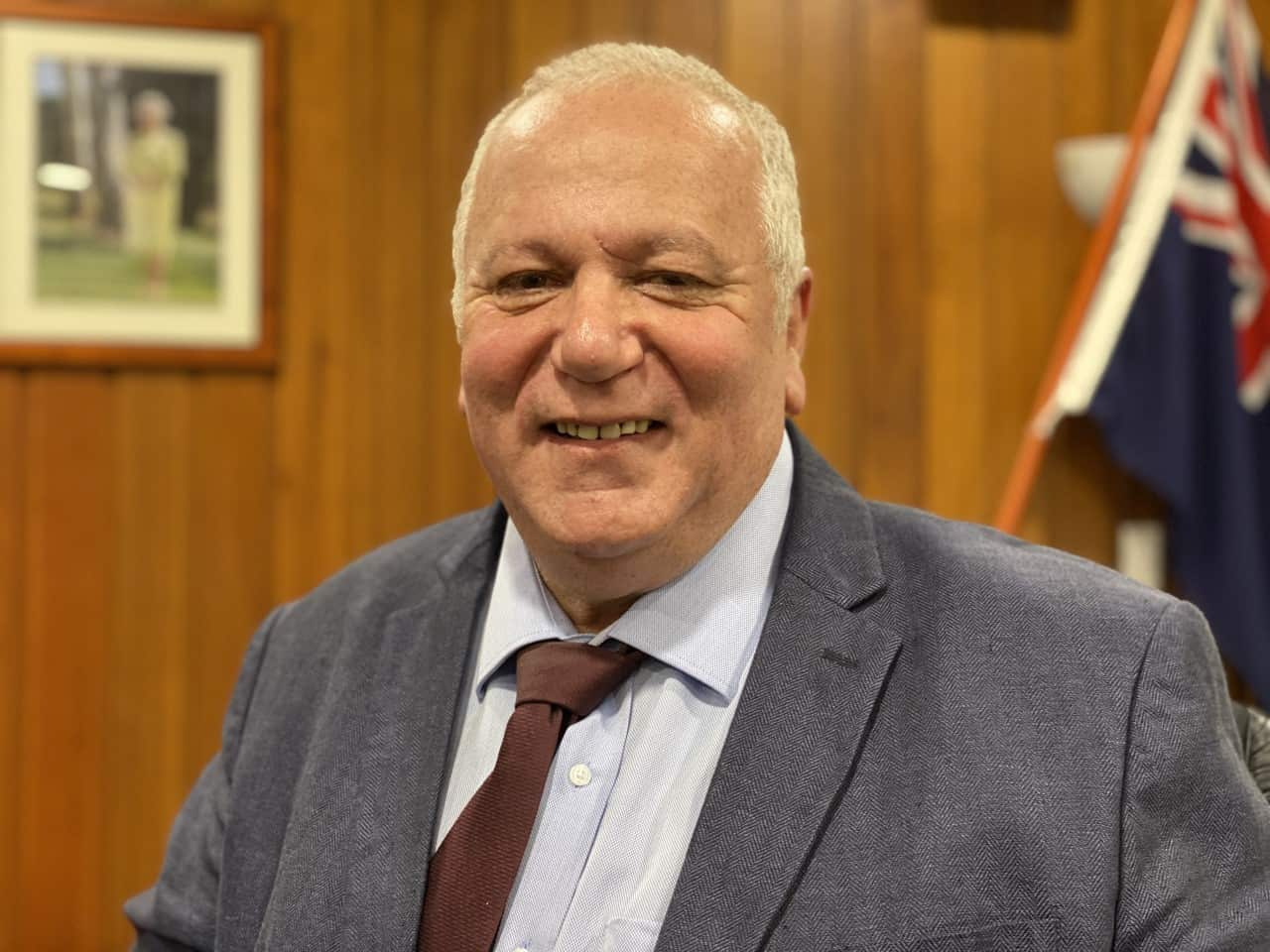It’s the end of an era for many of Australia’s regional newspapers as they shut or go digital-only.
One of them ceasing print production and going digital-only is the Warwick Daily News, which has served the town of Warwick in south-east Queensland for more than a century.
The newspaper began in 1919 when the Warwick Argus and the Warwick Examiner and Times - both launched in 1864 - were combined to form a regional daily.
Publisher News Corp blames an advertising downturn and rising digital demand for the closure of more than 100 local and regional titles, and Warwick locals say the end of their print product will have a significant impact.
Darryl Bain, newspaper delivery driver

Source: Stefan Armbruster/SBS News
“Warwick’s best ‘tosser’,” is what Darryl is known as, “because we toss papers out of the car”.
“We do three times as many Daily News as other papers. The older readers are up at 4.30 in the morning waiting for us, they like to read their local paper in the morning with a cuppa.
“It’s the lifeblood of a lot of towns, ‘the local rag’, that’s what it’s always been called. Unfortunately, it is what it is. It’s the end of an era. Very sad, very sad.”
Lynn Irwin-Kelly, journalist

Source: Stefan Armbruster/SBS News
“We’ve lost about 60 jobs between the printing shed and the newspapers, and that’s significant for a small town. There are no jobs left in this industry in this town anymore, so it’s either go to another industry or leave town.
“I did expect there to be some fallout but I didn’t expect the axe to be so sharp and so rapid. I expected the bi-weeklies and weeklies … I didn’t expect the dailies to go.
"We cover everyone’s life here, we cover their highlights and lowlights. I like to think we’ve covered it empathetically. I’ve been overwhelmed by the number of people who have come to me downtown saying, ‘I’m real sorry to hear about the paper’."
Babes and John McRae, readers

Source: Stefan Armbruster/SBS News
“We are saddened because we can’t go out much anymore and it’s our only source of communication of what’s going on in the outside world, so we need it badly. Most of the residents don’t have internet, they don’t have fancy smartphones.
“I like the crossword puzzle and the horoscope, and I read the comics, what’s happening generally with people, the councils, what my neighbours are doing, any events - sad ones and happy ones.
“Our generation would still like to open a newspaper and read the local events happening in our town.”
Jeremy Sollars, former editor

Source: Stefan Armbruster/SBS News
“We see it as an opportunity for us but I think people will miss that local masthead that’s been part of the community for such a long time.
“Our formula is quite simple; grassroots, community-based, we don’t have the national or the world pages. It’s all ‘hyper-local’, I guess is the term, and I think that’s what people want; some hard news and community sport, and things happening around the place.
“We certainly advocate for this community and, as someone who lives in regional Australia, understand life is very different here from the big cities from a political and economic point of view. We have a very strong role in advocating for the region.”
John Moulder, radio broadcaster

Source: Stefan Armbruster/SBS News
“We read out of the paper every morning, and it’s a big thing for our older audience, but we think we’re going to have to bump it up. We usually read a paragraph or two out of the main stories, but now we’re going to have to read longer.
“We as a radio station might have to get out and hunt for more information to get into our news reads.
"One thing we’re going to have to do is put in the funeral announcements, which we haven’t done in the past. Many know somebody they've not seen for decades and it’s embarrassing on the main street when you ask ‘how’s Fred?’ and find out Fred passed away 18 months ago.”
David Littleproud, MP

Agriculture Minister David Littleproud. Source: AAP
“What this demonstrates is that corporate Australia isn’t always a good thing for regional Australia, they promise the world and when things get tough globally, they cut and run.
“They’ve got to understand that there’s not the competitive tension there is in metropolitan areas and they have a social responsibility.
“In most of my electorate it’s going to a digital platform, but when you have an ageing population, they don’t want to engage on a digital platform, they want to have a physical paper there.
“Some of our small communities, that is their sense of pride, ownership and identity that’s played into the newspaper every week and to take that away and leave nothing but a digital platform is going to leave a lot of people disconnected.”
Robyn Fraser, advertiser

Source: Stefan Armbruster/SBS News
“I will really miss it, the social catch-up, and it’s been a very good tool for business over time.
“I’ll have to think of other ways [of advertising]. I’m doing a little on Facebook, stock arrivals, what I’ve got in store. I do lots of fashion parades. They’re always advertised through the paper. It will be a real loss to the town.
“But business is generally tough, like across Australia. I’m hanging in until people spend money again.”
Vic Penissi, mayor

Source: Stefan Armbruster/SBS News
“Newspapers have recorded history. You go to the museums, libraries, and you can flick through the history of these communities, and history is critically important.  “The news that comes across a minister’s desk also comes from [the newspapers], and governments of all persuasions look at those to collect some of their information.
“The news that comes across a minister’s desk also comes from [the newspapers], and governments of all persuasions look at those to collect some of their information.

Source: National Library of Australia
“The communities are quite sombre, they’re very disappointed they’re going to close, it’s a way of life. I’ll do what I can to make sure that print media remains in this district. It’s an absolute necessity. We’ll work with anyone who knocks on the door.”
Lousie Brosnan, business analyst

Source: Stefan Armbruster/SBS News
“A community paper has a really important role in providing the deep dive information of what’s going on and giving a local perspective, and there’s nothing like a local paper to get the community's views out there to a wider audience.
“I’m a subscriber to the Warwick Daily News and get it in my inbox but I don’t believe you get that full perspective on what’s going on and you don’t happen upon information like in a newspaper.
“You also can’t underestimate the role of local community newspapers in training up young journalists and giving them the basic skills and knowledge they then take elsewhere in the world.”
News Corp Australasia executive chairman Michael Miller last month thanked employees impacted by the company’s newspaper closures
“They have provided News with invaluable years of service. Their passionate commitment to the communities in which they live and work and their role in ensuring these have been informed and served by trusted local media has been substantial,” he said.
The Warwick Daily News will be available online from Monday 29 June behind a paywall.
“More than 375 journalists will be specifically covering regional and community news and information. They will continue to serve, and live in, their local communities with the majority in regional Queensland where we have most of our titles,” Mr Miller said.



